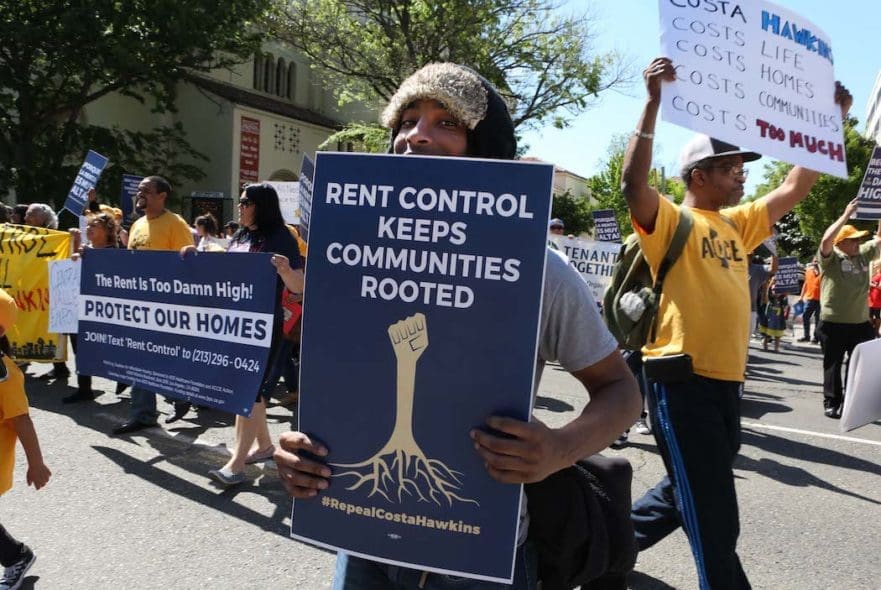In recent months, a growing list of top experts, including academics from USC, UCLA, and UC Berkeley, have been debunking anti-rent control arguments. Now Columbia University Business School Professor Stijn Van Nieuwerburgh joins the ranks.
On April 8, Van Nieuwerburgh, the Earle W. Kazis and Benjamin Schore Professor of Real Estate at Columbia, released the research paper “Affordable Housing and City Welfare.” Van Nieuwerburgh, along with co-authors University of British Columbia Assistant Professor Jack Favilukis and New York University doctoral candidate Pierre Mabille, take apart the claims of anti-rent control economists and policymakers.
“Economists typically have taken a narrow view towards rent control, preferring other options like vouchers for low-income and rent-burdened residents because they cause less distortion to the housing market. But we’ve found that expansion of rent control in major cities provides real benefits,” says Van Nieuwerburgh in a statement. “Better targeting of rent controlled housing units towards the lowest-income households can amplify these benefits.”
Van Nieuwerburgh adds, “In a world with rising urbanization, the high cost of housing in cities has surfaced as a daunting policy challenge in cities around the country and the world. Households of different ages, incomes, and wealth are affected differently by changes in policy, but our study finds that as policymakers continue to try to expand affordable housing, rent control policies can be a useful tool and a bulwark for residents struggling with the cost of living in the face of rising income risk.”
In a Columbia University statement, it’s noted that the “new research debunks conventional economic wisdom, finding evidence that rent control does not lead to an overall decline in the quantity of housing. The research also finds that the overall positive impact of rent control – reducing inequality and providing a source of stability for households who face a decline in income – more than compensates for any loss in market efficiency – due to higher housing and labor market distortions.”
Since last fall, Columbia University, USC, UCLA, and UC Berkeley have all released studies that found that rent control is a key tool to stabilize a housing affordability crisis that’s devastating middle- and working-class communities. Policymakers, academics, and reporters should take note of this research trend.
“The housing crisis requires a range of strategies, [and] moderate rent regulation is a useful tool to be nested in broader strategy,” wrote USC Professor Manuel Pastor, co-author of a highly regarded report Rent Matters. “It has fewer damaging effects than are often imagined, it can address economic pain, and it can promote housing stability. And housing stability matters because it is associated with physical, social, and psychological well-being; higher educational achievement by the young; and benefits for people of color.”
In 2018, more than 525 organizations and civic leaders in California endorsed Proposition 10, which sought to repeal statewide rent control restrictions. The No on 10 campaign, which was heavily financed by corporate landlords such as Blackstone Group and Essex Property Trust, primarily argued that housing construction would diminish if Proposition 10 was approved. Prominent experts such as Van Nieuwerburgh and Pastor say that’s not true.
California Gov. Gavin Newsom and state legislators should repeal the 1995 Costa-Hawkins Rental Housing Act, which created statewide rent control restrictions, and pass effective rent control legislation that will bring immediate relief to middle- and working-class Californians.
Such moves would help carry out the “3 Ps”: protect tenants through such policies as rent control and just cause eviction; preserve existing affordable housing such as rent-controlled units; and produce truly affordable housing.
Housing Is A Human Right, experts, and advocates agree that the “3 Ps” is the best way to immediately address California’s housing affordability crisis.

